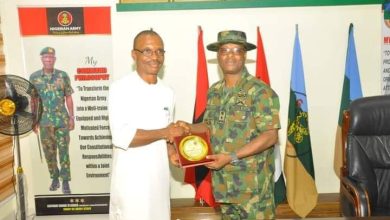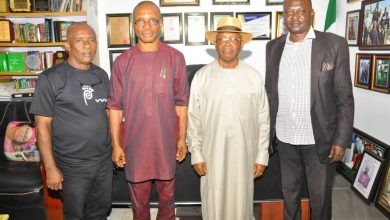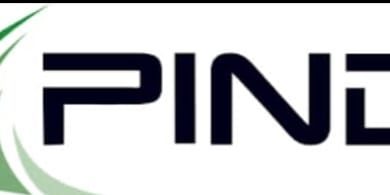Niger Delta, The AKK Gas Pipeline Project, And The Many Unanswered Questions (Part 1)

“Today marks an important chapter in the history of our nation. It marks the day when our domestic gas pipeline networks from Obiafu in Rivers State, Escravos in Delta State and Lekki in Lagos are being connected through Kaduna to Kano States, further enhancing national energy security…I therefore direct NNPC to ensure that these critical projects are completed in time, within budget and specification.” – President Muhammadu Buhari, June 2020, Abuja. “The funny part of it is that no mention is made of where the gas is coming from. People are absolutely angry and I am sure that there will be reactions; but we are committed to peace, we are committed to non-violent actions, and we will continue talking to our young people and to other leaders to ensure we maintain peace for the interest of our people” – National Publicity Secretary of PANDEF, Hon. Ken Robinson.
Judged by the revived and enthusiastic currents of interest and consummated financial commitments, everything going as carefully laid out, by June or July 2022, President Muhammadu Buhari shall have invited Nigerians and the world to be part of the celebration during the commissioning of the Ajaokuta-Kaduna-Kano Gas Pipeline project. Beyond the prevalent fanfare and prospective realities, the project is likely to be one of the greatest achievements of his eight-year stint as President of Nigeria.
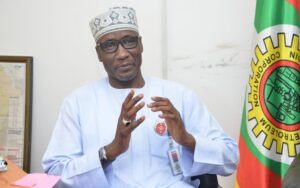
Recall that on Tuesday, June 30, 2020, using a virtual platform, the President performed the foundation-laying ceremony for the construction of the Ajaokuta-Kaduna-Kano Gas Pipeline project, otherwise known as AKK, estimated to cost about S2.8billion (N1.06trillion). In a nutshell, the massive, capital-intensive and integrated underground gas pipeline is designed to transport gas from the oil-endowed stinking creeks and slums of the South-South area of Nigeria to the far northern parts of the country. The group general manager/group public affairs division, Dr. Kennie Obateru, while briefing journalists last week stated that the event was zoomed virtually across two strategic centres: Rigachukun and Ajaokuta Steel Complex in Kaduna and Kogi States respectively.
In a post-event press release by the Nigerian National Petroleum Corporation (NNPC), the President observed that on completion the project will form the reservoir for generation of power and feedstock for gas-allied industries, facilitate the revival of moribund and dwindling companies, encourage the development of new ones along the affected routes, engender the spirit of competitive enterprise in general, and consequently generate direct and indirect employment for the citizenry. The project will also foster the development and utilization of local skills and manpower, technology transfer and promotion of localization of industries.
Re-echoing his administration’s cardinal goal of ensuring accessible, sustainable, enterprising and a more prosperous present and future Nigeria, part of the President’s speech emphasized that harnessing and commercialising the nation’s enormous and vastly untapped gas reserves will fast-track rapid economic development and diversification of the country. “We promised the nation that we will expand the key critical gas infrastructure in the country to promote the use of gas in the domestic market. These include the Excravos to Lagos Pipeline System -2 (ELPS -2), Obiafu-Obrikom-Oben (OB3) pipeline and the AKK”.
HISTORICAL BACKGROUND TO AKK: The AKK was conceptualized in 2006 as an integral component of the Nigerian Gas Master Plan (NGMP), as a gas infrastructure template and was approved by the Federal Executive Council (FEC) in 2007 in the swansong days of former President Olusegun Obasanjo. Little or no attention was given the project during the reign of Obasanjo’s next two successors, Presidents Umaru Musa Yar’Adua and Goodluck Jonathan; hence it never came to the frontline.
However, at its meeting on the 13th of December, 2017, the Federal Executive Council gave impetus and approval to the project with the award of the Engineering Procurement and Construction (EPC). This, according to sources, must have been due largely to the serious attention and convincing negotiations spearheaded in the last one year by the incumbent NNPC’s GMD. The PPP Compliance Certificate of the project in line with the ICRC Act and the National Policy on Public Private Partnership was issued by the Infrastructure Concession Regulatory Commission (ICRC) on the 10th of July, 2017. The project is to be facilitated through a Build and Transfer (BT) PPP model with 100 per cent Contractor Financing (https: //ppp.icrc.gov.ng/project/295
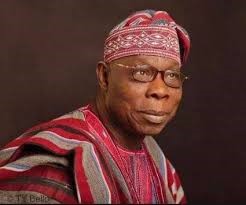

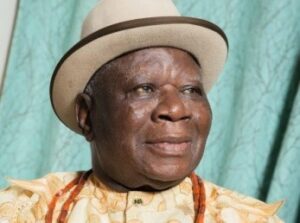
Like other developmental prototypes for the development of other sectors of the economy, the Nigerian Gas Master Plan serves as an extant architectural framework for gradual development and expansion of the Nigerian gas subsector aimed at complementing existing major domestic links or transmission networks. For example, as referred to by the NNPC in its statement on the heels of the virtual meeting, there is the 36-inch Escravos-Lagos Pipeline I and II, which presently generates 2-2billion cubic feet per day capacity. Also in existence is the ongoing East-West interconnectivity through the OB3 pipeline that boasts of 2-4billion cubic feet daily capacity generation. This is simply saying that the gas pipeline will link the South to the North, with comparative advantages and shared composite interest.
COMPONENTS/SCOPE/PROSPECTS OF AKK: AKK is a 40-inch by 614km integrated linear gas pipeline outlay, running from Ajaokuta and terminating in Kano, initiated by the Federal Government of Nigeria. To arrive at its final destination, it will traverse four states and the Federal Capital Territory (FCT), namely Ajaokuta in Kogi State, Abuja (FCT), Niger, Kaduna and Kano States. Although greater part of it will bestride forests, shrubs and farmlands, the pipeline will cross seven major rivers and 10 critically important highways. Expected to be completed in 24 months, the project has capacity to transport 2.2billion cubic feet of gas per day to the north and aid additional power generation capacity of 3, 600 megawatts.
Seen in the light of the fact that project-launch or foundation-laying scenes in Nigeria are, in most cases, to borrow an avant-garde phrase, are predominantly a mere “exercise in publicity” or a grandstand for political cheap applause, soon after which nothing than the drama of foundation-laying would be remembered, there are Nigerians who may see this project as too big to be realizable within the time frame.
Contrary to these mindsets nonetheless, such ones must not undermine the vim and political willpower AKK already seems to have attracted and that it is an immortal and vibrant agenda that has been in the pipelines. The brightest green light perhaps is that dependable financing for the project has been secured; boosted by President Buhari who tends to have firmly stamped his feet on ground to see it delivered.
Considering what has already been put in place, the AKK appears to have strong guarantees of translatable dreams. For instance, in a most pragmatic response to the President’s mandate, an express indication of readiness to fast-forwarding the processes and seeing the challenges of COVID-19 as no real hindrance to the funding and execution of the gigantic project, leadership of the NNPC led by the Group Managing Director (GMD), Mallam Mele Kyari, had assuaged possible fears in this regard.
In his welcome address during the virtual meeting, Kyari gave strong assurances that the NNPC was doing all it could within its powers and the appreciable measure of motivation given it by the Federal Government towards becoming a composite and dependable entity in driving and supporting President Buhari’s objectives of economic diversification. Kyari said this will further be made feasible, especially with the delivery of the Trans-Nigeria-Pipeline Project consisting of Escravos to Lagos Pipeline System -2 (ELPS -2), Obiafu-Obrikom-Oben (OB3) pipeline and the Ajaokuta-Kaduna-Kano (AKK) gas pipeline.
On the necessity, prospects and composite advantages of the gas pipelines to the affected areas and Nigerians in general, the GMD said it was one of the best initiatives of the present administration that will enable the development and expansion of petrochemicals, fertilizer, methanol and other gas-related industries and agitate employment consciousness and boost the economy. Stakeholders contend the project will add two new power plants in Kano and Abuja, provide Compressed Natural Gas (CNG) that can ignite complementary or competitive demand for petrol (Premium Motor Spirit), and boost foreign exchange as well as remove, perhaps to extinction, the generational debacle over oil subsidy.
Vouchsafing on behalf of the contracting partners, NNPC implored all to have trust in the ability of the contractors and the feasibility of the project within budget, specifications and time limit. Another strong factor that is hoped to boost completion of the project will be the level of commitment and dispositions of governors of affected states who must be familiar with the pitiable narratives of the Niger Delta, against the potential opportunities the project could present to them viz-a-viz the socio-economic development of their people.
AKK CONTRACTORS: According to NNPC, the 614km AKK project was awarded at a contract sum of S2.592 billion to Messrs Oilserve Plc/China First Highway Engineering Company (Oilserve/CFHEC Consortium) for the first segment covering 303km. Whereas the second part, covering 311km, was awarded to Brentex Petroleum Services/China Petroleum Pipeline Bureau (Brentex/CPP Consortium), under a debt-equity financing model with a loan from Bank of China and SINOSURE. The loan is expected to be paid through the pipeline transmission tariff and supported by a foreign guarantee.
Conversely, the project is primarily co-sponsored and financially facilitated by the Peoples Republic of China, the Bank of China and SINOSURE, predicated on the two Engineering Procurement Construction (EPC) contractors – Brentex/China Petroluem Pipeline Bureau-CPP Consortium and Oilserve/China First Highway Engineering Company ( CFHEC) Consortium. Like the GMD of NNPC disclosed, all required conditions upon which the deal was predicated have been provided. It was also confirmed that the inherent or intrinsic processes of obtaining internal approvals by lenders to facilitate the financing of the project is expected to be closed by August 2020. As component of the agreement, Kyari maintained that the NNPC shall depend on equity contribution to commence execution of the project to recoup lost time and put the project back on track.
RESERVATIONS/CRITICISMS: Although appreciating the development, some Nigerians with keen interest and expertise in the gas sub-sector have called for caution over the launch of the AKK, insisting that any assured optimism in its reality may be misplaced. As reported in the online edition of Vanguard Newspaper, July 5, 2020, under the title: “Don’t Rejoice yet over S2.8b AKK Gas Pipeline Project”, analysts pointed to a myriad of obstacles to the materialization of the project.
Some of the recurrent and potential problems they foresee include the enduring and volatile insecurity in the country, economic viability, timing, global oil and gas market realities, the structure of Chinese loans, and political factors. Besides, there is also the almost genetic syndrome of transparency of managers and stakeholders of Nigerian projects of this magnitude, lack of maximum integration of stakeholders who have capacity but who may not be political allies or critical commercial counterparts in national affairs. Again, there are fears or uncertainty over effects of the post-COVID-19 economy, climate and topography of the areas the pipelines are expected to run through.
Although the Pan-Niger Delta Elders Forum (PANDEF), a socio-political organization for the emancipation of the Niger Delta, made up of eggheads and stakeholders from the region, has not yet come out with any official position by the time of this report, its current national chairman and former military governor of Akwa Ibom State, His Excellency, AVM Idongesit Nkanga, in a chat with our Niger Delta Desk had promised that the body shall do so in a matter of days.
The former military officer, who unarguably is one of the pillars and most visible and outspoken advocates of the concerns of the Niger Delta region, however did not mince words in his personal observation that he was both happy and worried over the AKK Gas Pipeline project. He said he was happy that development continues to spread to other sections of the country courtesy of the rich but untapped endowments of the Niger Delta; but worried about the ingratitude and pretentions of some Nigerians over the source of the gas that is to be transported at such quantity to other parts of the country. “So, it is not just about us the Niger Deltans as if in isolation. Those from the Middle Belt, indeed the adjourning regions, are also affected. We will soon come out with an official statement, representing a collective position on the mater”, the retired Air Vice Marshall and strong man of the Delta conundrum stated.
As reported in the Vanguard, an energy expert and the deputy vice chancellor of Afe Babalola University, Prof. Damilola Olawuyi, sees the pipeline project as an initiative with a potential to bridge the gap of infrastructure deficit in the country through power generation and distribution capacity. He also sees the project as a shock-absorbing mechanism to generate employment and income to government in a post-COVID-19 era. The university don was however concerned about vandalism and sabotage that stare this possibility in the face.
WHERE IS THE PRIMARY SOURCE OF THE GAS? AKK is taking place on the premise of the superfluous gas in the womb of the Niger Delta as well as the new gas pricing and domestic supply context in Nigeria. The gas to be fed into the north-bound pipe interconnectivity is expected to be about 3, 500MMscfd of dehydrated wet gas sourced from various gas stations and outflows in the South-South region, at minimum pressure of 1,000 pounds per square inch gauge (psig).
Hydrocarbon liquids from the process will then be further processed at Ajaokuta to be transformed into liquefied petroleum gas (LPG). What then remains as intrinsic by-products will be transported via the pipelines to serve as feed stock for power and new petrochemical facilities planned for Abuja, Kaduna, Kano and their environs. Although NNPC plans to meander the gas-flow through some new channels, major part of it will go through the existing right-of-way of the Pipelines and Products Marketing Company’s crude oil/product pipeline to Kaduna. The works schedule and terms of preference include engineering, procurement, construction, installation, testing and commissioning.
NIGERIA’S GAS RESERVES: Nigeria is fondly described as a gas-surplus country, with gas reserves comprising associated gas (AG) and non-associated Gas (NAG). Experts say the country’s gas deposit is vastly untapped and therefore demands aggressive exploration and exploitation (REF). According to latest information from the Department of Petroleum Resources (DPR), the country’s current gas reserves stand at 203.16 trillion cubic feet (TCF). This adumbrates the question of and the need for the Nigeria government to develop modalities towards optimal utilization of the gas that could influence the Gross Domestic Product (GDP) of the country, especially in connection with electricity. Yet, latest World Bank Reports (2020) shows that Nigeria loses about N10trillion annually for lack of electricity.
NIGER DELTA MASTER PLAN/OGONI CLEAN-UP/EAST-WEST ROAD, ETC: Some Nigerians, especially from the Niger Delta region, do not see the AKK project as a priority in times like this. These feelings are driven and could be understood from the perspective that there are many stagnated or completely abandoned projects that litter the length and breadth of the Niger Delta. Some of these include highly promising but sabotaged projects which began more than two decades ago, with different presidents coming and going. These include the politically-hyped East-West Road; the Niger Delta Master Plan; Ogoni Clean-Up; the controversial Hyacinth contract; the Niger Delta 16-Point Agenda, and the Calabar-Itu Raod. Questions have even been raised on the status of the Ajaokuta Steel Mill.
In this regard, the National publicity secretary of PANDEF, Hon. Ken Robinson, has described as crass injustice and despicable plans by the Federal Government to fast-track the AKK. Chatting in a private capacity with newsmen in Calabar on the heels of the launch of AKK, Hon. Robinson who faulted the elaborate publicity given the project pointed to the deplorable socio-economic situation of the Niger Delta, upon the constant rain of promises by even the Buhari-led administration. “With the fanfare and all that elaborate publicity that was given to it, it is abhorrent; it is offensive to the people of the Niger Delta region”. Robinson, who particularly pointed to the Brass LNG that has been abandoned, reflected.
The indisputable facts, nevertheless, is that with oil having been discovered in the Niger Delta more than 60 years ago, the region has been sacrificial breadwinner of the country, with oil having launched Nigeria on the world map of the richest oil countries in the world. But this lamentation also comes with challenges to leaders of the zone. At least, for proof of prudence and demonstrable determination towards an auspicious cause, there are many reasons this matter should matter to President Buhari, who in the past five years has not only expressed bitterness over the obvious corruption and attendant wastefulness that have characterized the NDDC, with resultant negative effects on the entire Niger Delta region.
It almost automatically follows that in taking a position, stakeholders in the Niger Delta must quarantine themselves against acting in selfish self-interest and self-denigration on the altar of the boomerang politics. It is time to present a united front for collective bargains and benefits. This is an unending discourse. Watch out next week for part two.

